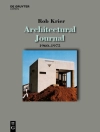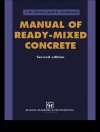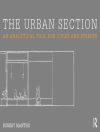Examining the transformation of transparency as a metaphor in West German political thought to an analogy for democratic architecture, this book questions the prevailing assumption in German architectural circles that transparency in governmental buildings can be equated with openness, accessibility and greater democracy.The Transparent State traces the development of transparency in German political and architectural culture, tying this lineage to the relationship between culture and national identity, a connection that began before unification of the German state in the eighteenth century and continues today. The Weimar Republic and Third Reich periods are examined although the focus is on the postwar period, looking at the use of transparency in the three projects for a national parliament – the 1949 Bundestag project by Hans Schwippert, the 1992 Bundestag building by Gunter Behnisch and the 1999 Reichstag renovation by Norman Foster.Transparency is an important issue in contemporary architectural practice; this book will appeal to both the practising architect and the architectural historian.
Deborah Ascher Barnstone
Transparent State [PDF ebook]
Architecture and Politics in Postwar Germany
Transparent State [PDF ebook]
Architecture and Politics in Postwar Germany
Mua cuốn sách điện tử này và nhận thêm 1 cuốn MIỄN PHÍ!
Ngôn ngữ Anh ● định dạng PDF ● Trang 304 ● ISBN 9780203799888 ● Nhà xuất bản Taylor and Francis ● Được phát hành 2004 ● Có thể tải xuống 6 lần ● Tiền tệ EUR ● TÔI 2295433 ● Sao chép bảo vệ Adobe DRM
Yêu cầu trình đọc ebook có khả năng DRM












